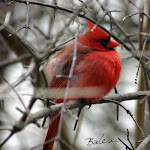•
2014: The Best & Worst
This is the time of the year when writers coast. They dream up their
totally subjective best and worse lists for the year that's rapidly
coming to a close. Why? So they can focus on the important things...the
holidays. So with that in mind:
OK. It's an odd choice with an odd title, Horseshoe Crabs and Velvet Worms published in 2012. It probably never appeared on the New Your Times Bestseller List.
Yet my favorite book of the year comes with an enticing subtitle, "The Story of the Animals and Plants That Time Has Left Behind." That's what lured me in, that and that most excellent cover design. Tenacious lifeforms, millions of years and still going strong, what a perfectly interesting read, and it also proved to be in the hands of a skilled writer.
It's part natural history and part global travelogue as author Richard Fortey takes us in search of very old, old life on Earth just abiding their time. Not only to the Delaware Bay as horseshoe crabs come ashore to lay eggs, but Fortey takes us to ginkos tucked away in a remote valley in China and velvet worms inside a log in New Zealand and lungfish muddling ashore in Australia. Not fossils, but living fossils, quietly living their unheralded lives, year after year after year. Steadfast.
"I like to think of the double helix of the DNA that proves the shared ancestry of the simplest of prokaryotic organisms with the bison and her baby as a kind of plaited twine weaving through the tree of life," writes Fortey. "But bound together by the twine of descent as they are, every one of these living beings still has its own biology, and every biography could be as interesting as that of any organism I have selected for this book. No ant is too small to fail to deserve our attention, no microbe too hard to understand, no fungus too obscure, nor any flower too evanescent."
"The richness of the biological world is the most wonderful feature of the biosphere, and every story is worth the telling no matter how humble, or indeed insular, is the organism concerned," adds Fortey.
Indeed, all life is insular, including the one typing on this keyboard, but yet no man is an island and all life is unequivocally connected through that shared ancestry.
After reading this book, my family tree got immensely bigger.
Thank you.
•
Monday, December 29, 2014
Subscribe to:
Post Comments (Atom)




































































No comments:
Post a Comment